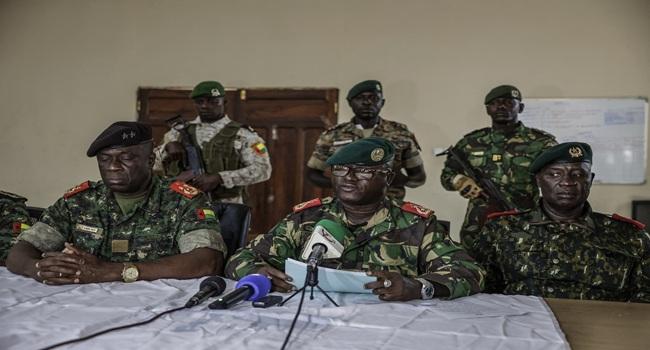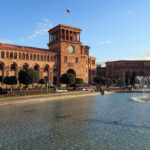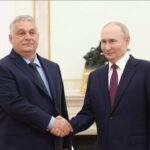26–27 November 2025, the army ousted President Umaro Sissoco Embaló and installed Gen. Horta N’Ta Na Man as transitional leader.
Guinea-Bissau is a small, chronically unstable state where three fault lines overlap:
- Hyper-fragmented political system and constitutional crisis
- Embaló came to power in a disputed 2019 election and was only formally recognised after ECOWAS pressure.
- Since 2022–23 he dissolved parliament, repeatedly clashed with the PAIGC-led coalition, and governed in a grey constitutional zone, overstaying his mandate while preparing for re-election in November 2025.
- This deepened elite mistrust in electoral and judicial institutions and normalised extra-constitutional manoeuvres.
- Militarisation of politics and “coup habit”
- Guinea-Bissau has experienced multiple coups and attempts (1980, 1998–99, 2003, 2012, 2022, 2023), with the armed forces seeing themselves as the ultimate arbiter of politics.
- The 2022 and 2023 “attempted coups” already blurred the line between genuine insurrections and instrumentalised crises used by Embaló to consolidate power.
- Narco-state dynamics and criminalised elites
- Since the mid-2000s, Guinea-Bissau has been a major cocaine transit hub from Latin America to Europe; the UN and analysts have labelled it a “narco-state,” with segments of the political-military elite deeply involved
- The state’s coercive apparatus is partially financed and penetrated by drug money. A 2024 seizure of 2.63 tonnes of cocaine flown in from Venezuela shows that trafficking networks remain powerful and adaptive
These structural factors made the 2025 coup likely once the presidential race became zero-sum and both sides believed the other would rig or invalidate the result.
Immediate triggers of the 2025 coup
2.1 Disputed presidential election
- Presidential elections were held on 23 November 2025. Before provisional results were released, both Embaló and challenger Fernando Dias claimed victory
- Rumours circulated of manipulation at the electoral commission involving politicians and drug traffickers. The army publicly justified its intervention by citing an alleged plot to falsify results and “steal” the election
2.2 Pre-existing political delegitimisation
- Embaló’s dissolution of parliament (after the 2023 armed clash with the National Guard which he also labelled an “attempted coup”) had already eroded his domestic legitimacy and international patience with his tactics.
Opposition forces accused him of manipulating security incidents and judicial processes to neutralise rivals and prolong his stay in office.
Military’s fear of being sidelined or punished
The officer corps likely calculated that a post-election power consolidation by Embaló (or even a hostile victory by Dias backed by PAIGC structures) could lead to:
- Reshuffles in the high command;
- Renewed purges related to drug trafficking investigations;
- Internationally driven security sector reforms curtailing military prerogatives.
In that sense the coup is pre-emptive: the military moves against civilian elites before results formalise a winner and lock in a new balance of power.
Main actors and their interests
3.1 The High Military Command / Gen. Horta N’Ta Na Man (junta)
- A group of senior officers styling themselves the “High Military Command for the Restoration of Order” seized state TV, closed borders and suspended the electoral process
- They have installed Gen. Horta N’Ta Na Man as transitional president for an announced one-year period.
Interests:
- Corporate survival and impunity
- Shielding officers from potential prosecution for past coup attempts, drug-related complicity, and human rights abuses.
- Control over state rents
- Direct influence over appointments in customs, ports, security, and justice sectors that intersect with trafficking and contraband.
- Re-framing themselves as “guardians of the nation”
- Using the narrative of preventing electoral fraud and restoring order to secure domestic acceptance and fend off ECOWAS sanctions.
Umaro Sissoco Embaló and Madem-G15
- Embaló, a Fulani former general and leader of Madem-G15, had governed since 2020 and was seeking re-election.
- He claims he won the 2025 election and describes the coup as a “false coup attempt” staged against him because he defeated entrenched interests.
Interests:
- Political survival and personal security – avoiding imprisonment or exile, retaining a role in future negotiations.
- Preservation of his network – protecting loyalists in security forces, business, and administration who benefitted from Madem-G15 patronage.
- International narrative war – portraying himself as victim of a narco-military cabal to mobilise ECOWAS/AU pressure for his reinstatement.
3.3 Civilian opposition: Fernando Dias and PAIGC ecosystem
- Fernando Dias emerged as a key challenger, reportedly linked politically to the banned PAIGC structures through opposition leader Domingos Simões Pereira.
- The opposition views the coup as either:
- A genuine military power grab that hijacked their likely electoral victory; or
- In some narratives, a staged crisis involving elements around Embaló and the high command to cancel unfavourable results.
Interests:
- Reinstatement of electoral process and publication of actual results.
- Leverage in future negotiation – using international condemnation of the coup to secure a role in any transitional arrangement.
- Reversal of parliament’s dissolution and restoration of PAIGC’s institutional influence.
Security factions and the drug economy
- Previous episodes (2012 “cocaine coup,” 2022 attempt, 2023 mutiny) show that security factions linked to drug networks have repeatedly acted when they feared losing access to trafficking rents or facing extradition/sanctions.
- In 2025, the line between:
- officers genuinely alarmed by vote-rigging; and
- officers protecting criminal interests
is blurred, and both motives likely co-exist.
Ethnic beneficiaries and losers
Ethnicity in Guinea-Bissau does not map neatly onto party lines, but it shapes recruitment into the armed forces and patronage networks.
Ethnic structure
- Major groups: Balanta ~30%, Fula ~30%, Manjaco 14%, Mandinga 13%, Papel 7%.
- Historically:
- Balanta and some coastal groups (Papel, Manjaco) were over-represented in the military;
- Fula and Mandinga elites have exercised influence in commerce and politics.
Embaló himself is from a Fulani (Fula) family.
Likely ethnic dynamics of the 2025 coup (provisional)
Public reporting so far does not clearly identify the ethnic composition of the junta, so any assessment must be cautious.
Plausible patterns:
- Balanta / coastal officer networks may see the coup as an opportunity to reassert their corporate weight against a Fulani-led presidency perceived as too personalised and externally dependent.
- Fulani political elites connected to Embaló and Madem-G15 risk losing access to state resources and protection, at least in the short term.
- However, the drug economy and political patronage are cross-ethnic; beneficiaries and losers are more defined by factional, not purely ethnic, alignment.
- Ethnicity is present but instrumental — used to mobilise loyalties within the military and regions — yet the primary cleavage is between pro-junta security networks and civilian political blocs, not between specific ethno-linguistic communities.
Foreign actors and external interests
Regional organisations: ECOWAS and African Union
- ECOWAS and AU observers immediately condemned the coup, calling for release of detained officials and restoration of constitutional order
- ECOWAS has a long history in Guinea-Bissau:
- peacekeeping / stabilisation deployments after the 2012 coup;
- mediation in disputed elections.
Interests:
- Prevent further erosion of the already weakened anti-coup norm in West Africa (after Mali, Burkina Faso, Niger, Guinea, Gabon).
- Protect regional security, especially:
- maritime routes;
- cross-border trafficking;
- spillover of armed groups.
International community (UN, EU, Portugal, US)
- The UN and key partners (EU, Portugal) are likely to:
- condemn the coup;
- threaten targeted sanctions;
- suspend some assistance pending a credible transition roadmap.
- The US and EU have an additional, specific interest in:
- disrupting cocaine flows via Guinea-Bissau, evidenced by joint operations like the 2024 seizure that involved the U.S. DEA and European anti-narcotics centre.
Non-state foreign actors: drug cartels
- Latin American cartels and transnational brokers treat Guinea-Bissau as a logistics platform, exploiting weak institutions and corruptible elites.
- For these actors, any regime (civilian or military) is acceptable if:
- security services remain cooperative;
- key ports/airstrips and customs channels stay open or lightly supervised.
The coup does not reduce their influence by default; it merely reshuffles which local protectors they must pay.
Consequences
Domestic political consequences
- Suspension or hollowing out of democratic institutions
- Elections are halted; parliament was already dysfunctional. This entrenches rule by decree under a military-dominated transitional council.
- Further normalisation of coups
- After 2003, 2012 and repeated attempts, 2025 confirms that no elected leader can assume to finish a term. This discourages long-term policy planning and investment.
- Repression and selective justice
- Likely arrests of Embaló loyalists, opposition figures, and critical media under the guise of fighting corruption or drug trafficking.
- Fragmentation risk
- If parts of the security sector remain loyal to Embaló or rival officers, Guinea-Bissau could see factional clashes, especially in Bissau and key border/port zones.
Security and criminal economy
- Short-term:
- Curfews, checkpoints and border closures may temporarily disrupt trafficking routes and banditry.
- Medium-term:
- If the junta consolidates, it will likely renegotiate terms with traffickers rather than dismantle the trade, as state finances and patronage depend on these rents.
- Long-term:
- Continued narco-state characteristics, with civilians as losers: more corruption, weaker rule of law, and violence around contested trafficking channels.
Regional and international implications
- Another blow to ECOWAS authority
- ECOWAS now faces yet another junta, stretching its sanctions capacity and undermining its credibility after mixed results in Mali, Niger, and Guinea.
- Signal to other militaries in the “coup belt”
- Officers elsewhere see that coups still succeed despite formal condemnation and limited sanctions.
- Opportunities for external powers
- Russia, China, Gulf states, and others could deepen ties with whoever holds power, offering security assistance or investments with fewer governance conditions than the EU/US — especially in:
- fisheries,
- offshore hydrocarbons (Chevron already has interests),
- ports with dual-use potential
- Russia, China, Gulf states, and others could deepen ties with whoever holds power, offering security assistance or investments with fewer governance conditions than the EU/US — especially in:
7. Scenarios (1–2 year horizon)
Scenario 1 – Managed transition (best realistic case)
- Under ECOWAS pressure, the junta agrees to a 12–18 month transition with:
- inclusive government;
- security sector dialogue;
- new elections under revised rules.
- Embaló is sidelined (exile or domestic immunity deal).
- Limited sanctions are lifted gradually.
Probability: moderate but requires sustained external leverage.
Scenario 2 – Consolidated military–criminal regime (status quo plus)
- Junta entrenches; transition repeatedly postponed.
- Repression increases; symbolic anti-drug campaigns mask continued trafficking.
- Guinea-Bissau becomes a more central node in regional cocaine routes as other hubs face pressure.
Probability: high if international attention wanes after initial condemnation.
Scenario 3 – Internal fragmentation and low-intensity conflict
- Splits within the armed forces or between junta and powerful commanders (e.g. with their own trafficking patrons).
- Localised clashes in Bissau and strategic corridors; proliferation of armed gangs.
- Humanitarian deterioration, more migration, and greater space for transnational criminal and extremist actors.
Probability: low–moderate but rising if sanctions bite without a political roadmap.
1. Direct Russian involvement: none detected so far
- No credible reporting links the junta’s leaders to Russian advisers, PMC structures, or diplomats.
- The coup appears internally driven: military–political rivalry, narco-economy interests, and contestation of the 2025 elections.
- Moscow has not publicly celebrated or endorsed the junta — unlike its quick alignment with coups in Mali, Burkina Faso, Niger, CAR.
Conclusion: No evidence of planning, financing, or operational support by Russia.
Indirect pathways where Russia may benefit or maintain low-profile influence
Even without direct involvement, Russia frequently exploits institutional fragility in West African states. Several vectors are relevant in Guinea-Bissau:
Information and diplomatic alignment: passive but opportunistic
- Guinea-Bissau historically voted with Russia or abstained on key UN votes (Ukraine-related, sanctions, Syria).
- Embaló was not openly pro-Russian, but his rivalry with ECOWAS and the EU made him more receptive to non-Western partners.
- A junta facing international isolation may turn toward Russia for:
- diplomatic shielding in the UN,
- low-cost security support,
- training packages through Rosgvardia or Wagner’s “Africa Corps”.
Pattern: Similar post-coup drift happened in Mali, Burkina Faso, Niger, and CAR.
Russian interest in ports, fisheries, and offshore hydrocarbons
Russia has several strategic incentives in the Gulf of Guinea:
Ports and maritime access
- Guinea-Bissau’s ports (Bissau, Cacheu) are shallow and underdeveloped but valuable for:
- fishing fleets,
- discreet maritime logistics,
- access to the Atlantic cocaine corridor.
Russia could offer:
- port modernisation,
- maritime security assistance,
- fisheries agreements (already a typical Russian entry point in West Africa).
Moscow used similar strategies in Guinea, Senegal, Mauritania and attempted in Sierra Leone.
Hydrocarbon exploration
- Guinea-Bissau shares offshore basins with Senegal and Guinea-Conakry where Russian firms have shown interest.
- A junta cut off from Western capital may welcome Russian state-owned companies or Wagner-linked intermediaries.
Russia’s relationship with narco-states and criminalised elites
This is delicate but relevant for analytic purposes:
- Russia historically cooperates with governments and military networks embedded in illicit economies (CAR diamonds, Mali gold, Sudan gold, Madagascar chromites).
- Guinea-Bissau’s military and political elites are deeply linked to the cocaine transit economy.
- Such criminalised structures are ideally aligned with Russia’s African strategy:
- weak rule of law,
- elites needing external security guarantees,
- opaque financial channels,
- hybrid networks (weapons–logistics–resources).
If Russia engages, it would be transactional, not ideological.
Security sector possibilities: Wagner/“Africa Corps” model
Even without evidence today, the situation presents similar entry points Russia exploited elsewhere:
- A junta seeking counterbalancing forces against ECOWAS pressure may ask for:
- presidential guard training,
- cyber and counterintelligence support,
- supply of light weapons,
- political technology/propaganda assistance.
This is exactly how Russia entered the CAR (2017), Mali (2021), Burkina Faso (2022), Niger (2023).
Guinea-Bissau’s coup leaders — if sanctioned by ECOWAS — may lean toward Moscow for survival.
Risk indicator to watch: sudden visits by Russian delegations, military attachés, or business groups offering “security cooperation.”
What Russia gains from instability in Guinea-Bissau
Even without direct participation, the coup favours several Russian strategic objectives:
Weakening ECOWAS
- Russia benefits from the decline of ECOWAS as a security actor.
- The bloc is already weakened by Mali, Burkina Faso, and Niger’s exit.
- Another coup strains its normative credibility and overstretches its sanctions capacity.
Creating another potential anti-Western military regime
- If the junta shifts toward Russia (like Mali/Niger), this creates:
- another vote in multilateral settings,
- another node for Russian narratives,
- another customer for arms/security services.
Access to the Atlantic narcotics corridor
- Russia has not been directly tied to cocaine trafficking via Guinea-Bissau.
- But Russia’s intelligence services and PMC networks often exploit criminal logistics (Libya–Sahel gold corridors, Libyan ports, Sudan gold smuggling).
Guinea-Bissau’s narco-state environment is a fertile ground for covert logistics, disinformation hubs, and off-books financing.
- Unlike Mali/Niger/Burkina/CAR, Russia has no strong pre-existing security footprint in Guinea-Bissau.
- No anti-French/anti-Western ideological mobilisation preceded the coup.
- The coup’s timing is tied to domestic political calculations, not external agitation.
- The junta’s initial messaging has not used pro-Russian talking points (anti-colonialism, “multipolarity,” anti-French rhetoric).
This strongly suggests the coup is internal, not externally engineered.
Russia probably did not orchestrate the 2025 Guinea-Bissau coup.
However:
The coup opens structural opportunities for Russia to expand influence in a fragile and internationally isolated state.
It is fundamentally a domestic crisis in a narco-military political system, but one that aligns with Russia’s:
- geopolitical interest in undermining ECOWAS and Western partners;
- security-expansion model across Africa;
- opportunistic engagement with criminalised political elites;
- search for new Atlantic access points.
Risk: high (Russia may enter within months if the junta faces sanctions).
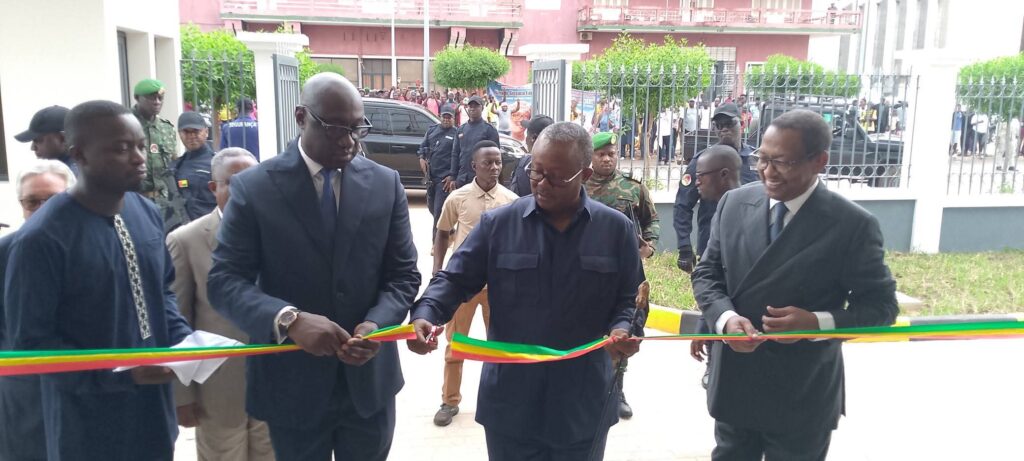
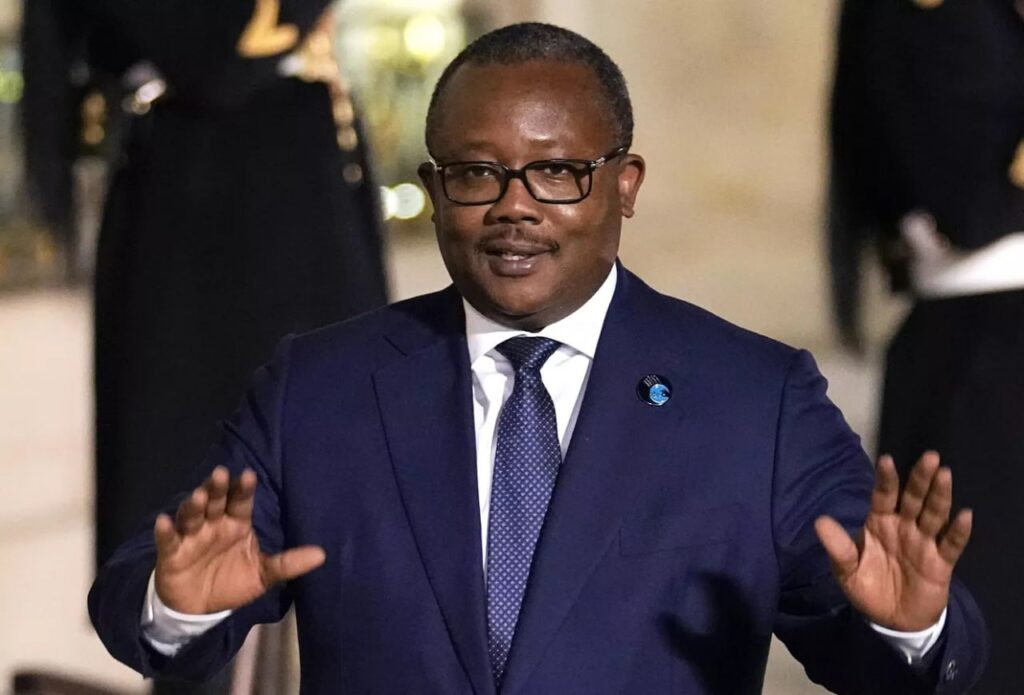
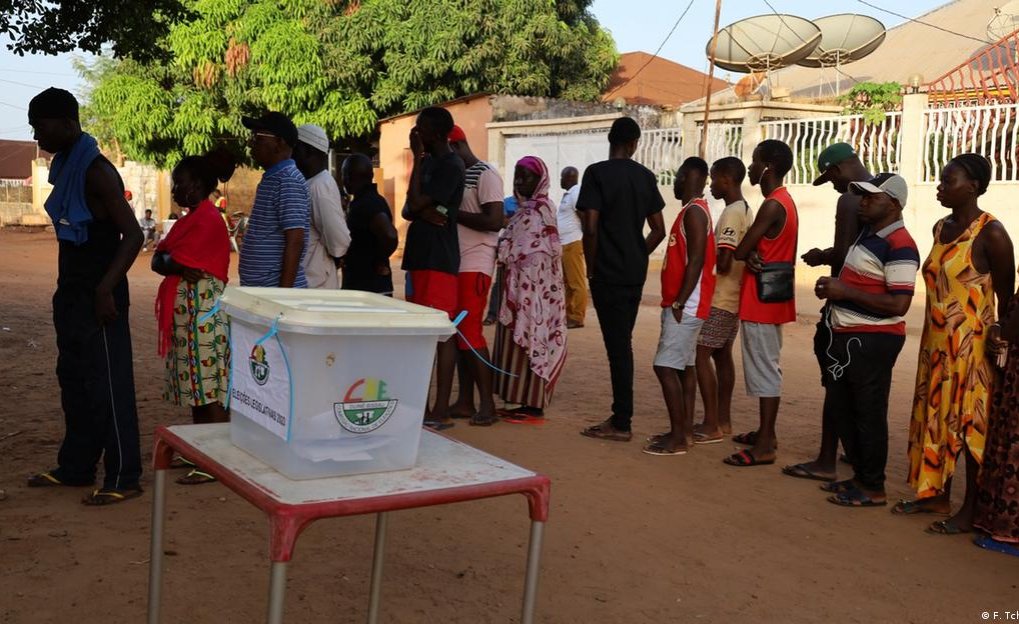
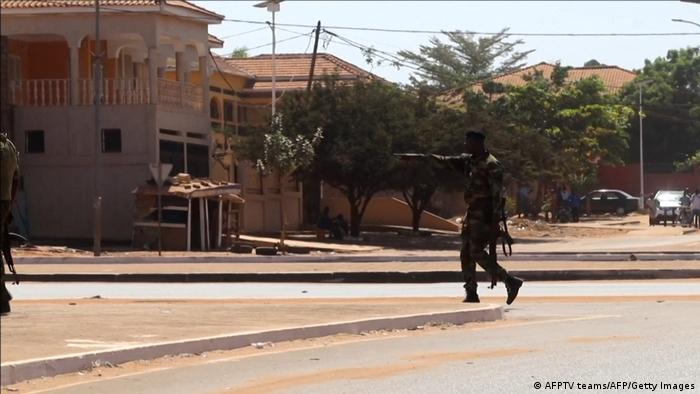
More on this story: Guinea-Bissau’s foiled coup: linked to drug or against French-friendly President
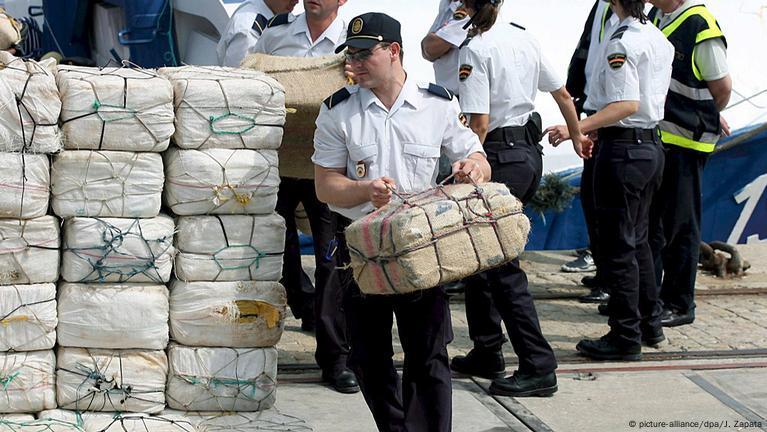
Evidence today: low (no verified link yet).


